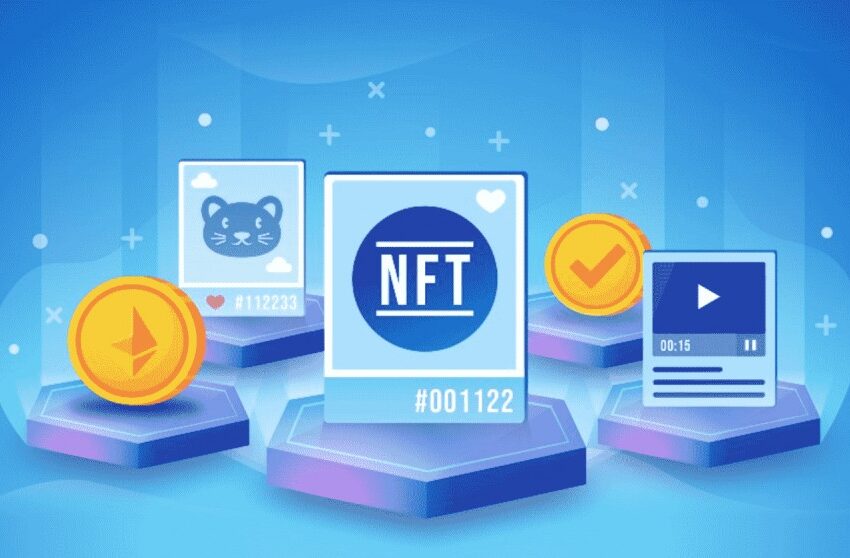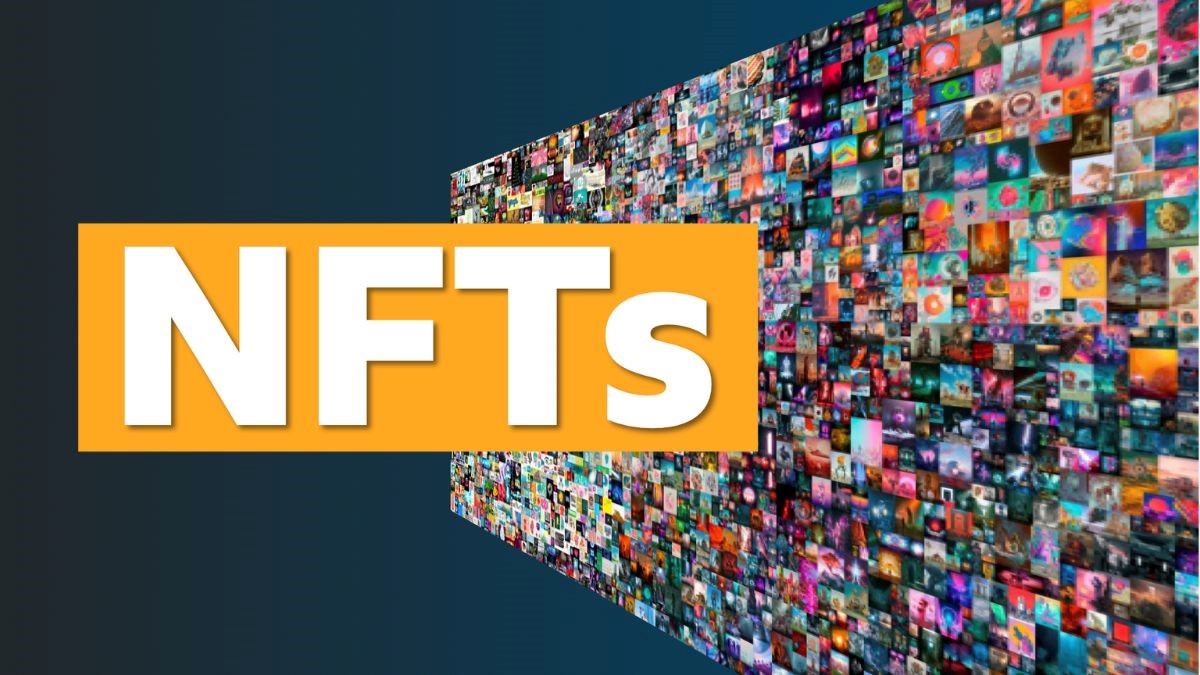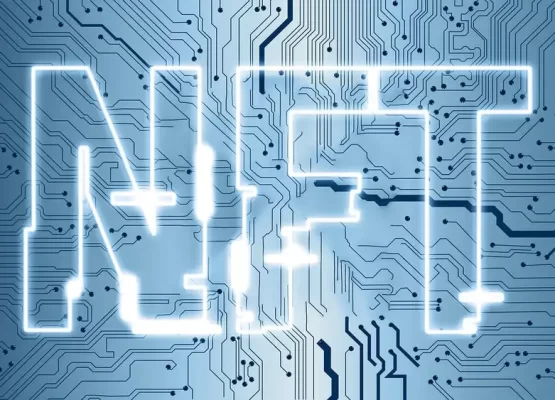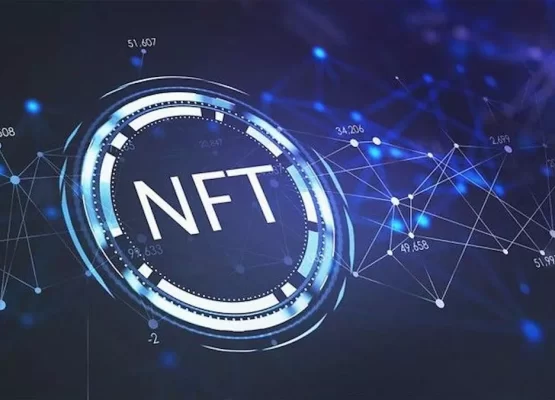In recent years, Non-Fungible Tokens (NFTs) have emerged as one of the hottest trends in the digital world. NFTs are unique, blockchain-based tokens that represent physical or virtual assets and bring with them an array of potentially game-changing opportunities. As a result, an increasingly large number of individuals, businesses and organizations are turning to NFT marketplaces to tap into their vast potential. In this article, we’ll explore what makes these marketplaces so powerful and how they can be used to unlock even more value for buyers and sellers alike.
Non-fungible tokens (NFTs) have become a revolutionary new way for creators to monetize their work, giving them the opportunity to be rewarded for their creative efforts. NFT marketplaces are platforms built around this concept of digital asset ownership, allowing users to buy and sell NFTs without dealing with any third-party applications or middlemen. The potential of these platforms is immense, as they provide a secure and trustless environment in which buyers and sellers can interact directly.
What is an NFT Marketplace?
Non-fungible tokens (NFTs) have recently become a hot topic in the digital world, and an important part of the discussion is NFT marketplaces. NFTs are unique digital assets that represent ownership of something physical or virtual, most commonly used for collectibles such as virtual art, music and other tokens. While there has been much discussion about what NFTs are and how they work, there is still some confusion surrounding their use in a marketplace setting.
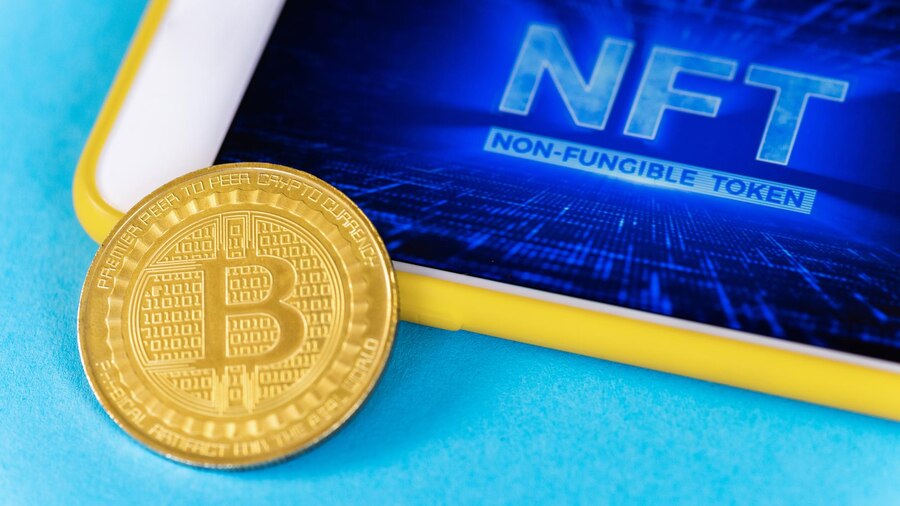
Non-fungible tokens, or NFTs, are a relatively new type of digital asset created on blockchains. They have become increasingly popular as a way to purchase, trade and collect unique digital items such as artwork, music and even virtual real estate. As the demand for these assets has grown, so too has the number of NFT marketplaces that now exist. In this article we will explain what an NFT marketplace is and discuss how they work to provide buyers with access to rare digital assets.
Benefits of NFTs
Non-fungible tokens (NFTs) are becoming increasingly popular in the digital world. NFTs are a type of token that can represent anything from artwork to digital collectibles and even real estate, and provide many benefits for their holders. The use of this technology has been gaining traction since 2017, but only recently has it become mainstream. As the use of NFTs gains more popularity, more people are beginning to understand the potential benefits they offer. In this article, we will explore some of the key advantages that come with owning an NFT.
Non-Fungible Tokens (NFTs) are digital assets that exist on the blockchain and represent ownership of a unique asset. NFTs have become increasingly popular, as they have already proven to be a viable option for asset owners who are looking for ways to tokenize their digital collectibles and other items of value. There are numerous benefits associated with using NFT Development, ranging from providing greater transparency to ensuring secure ownership records.
Non-Fungible Tokens, or NFTs, are a revolutionary new asset class that have captured the attention of investors, collectors and entrepreneurs alike. NFTs offer a wide range of potential benefits that can be leveraged by individuals and businesses alike. From providing a new way to own digital collectibles to enabling tokenized ownership of physical assets, the opportunities afforded by NFTs are countless. This article will provide an overview of the advantages of Non-Fungible Tokens, such as increased liquidity and fractional ownership, as well as improved transparency and security for transactions.
Challenges of NFTs
Non-fungible tokens (NFTs) have become the hottest topic in the blockchain industry as of late. NFTs are digital assets that exist on a blockchain, making them verifiably scarce and unique. NFTs are used to represent things such as collectibles, art, game items, and virtual real estate. They provide an easy way for people to prove ownership of digital items, but they also can come with some challenges.
One challenge is liquidity, or the ability to easily convert a token into cash or another form of asset. The limited market makes it difficult to find buyers willing to pay top dollar for an NFT. As a result, investors may not be able to recoup their entire investment if they decide to sell their token later on.
Non-fungible tokens (NFTs) have become a popular buzzword in the digital world, with many investors clamoring to get their hands on them. NFTs offer a unique opportunity for individuals to own digital assets and establish ownership rights over those assets, making them an attractive option for many. However, there are several challenges associated with investing in these tokens that potential buyers should be aware of before jumping into the market. This article will explore some of the major obstacles that come with owning and trading NFTs, such as low liquidity levels and high transaction fees.
Power and Potential of an NFT Marketplace
Non-fungible tokens (NFTs) have become increasingly popular over the past few years, as more people embrace their potential. NFT marketplaces are a way to make use of this digital asset, and capitalize on its ability to facilitate secure transactions. This article explores the power and potential of an nft marketplace platform development – how it can revolutionize the way we buy and sell digital products, create new opportunities for investors, and provide users with a safe platform for trading items.
Non-fungible tokens (NFTs) are revolutionizing the way digital assets are exchanged and managed. As a result, an NFT marketplace is emerging that provides powerful tools for both buyers and sellers of digital goods. This article will explore the power and potential of an NFT marketplace, outlining how it can be used to transact digital goods with greater security, speed, efficiency and liquidity than ever before. By harnessing the advantages of decentralization, blockchain technology, and tokenization—all enabled by NFTs—these marketplaces offer a new paradigm for trading digital assets.
Non-fungible tokens (NFTs) are gaining more and more attention in the blockchain space. They offer unique advantages to buyers and sellers, ranging from verifying ownership and authenticity of digital assets to creating a new level of collectable value for asset holders. The potential for an NFT marketplace is immense, with opportunities to create a vibrant trading environment that opens up new possibilities for the digital economy. This article will explore the power and potential of an NFT marketplace, looking at how it can benefit both buyers and sellers as well as the wider blockchain economy.
Impact of an NFT Marketplace
Non-fungible tokens (NFTs) have been gaining traction in recent years, and their impact is only growing. An NFT marketplace provides an effective way to buy, sell, trade, or collect digital assets like artwork, music, and videos. By utilizing blockchain technology to create unique identifiers for each asset stored on the network and allowing users to purchase these assets with cryptocurrency, the NFT marketplace has revolutionized the way people think about digital art ownership.
Non-fungible tokens (NFTs) have been the talk of the town in the world of digital assets. NFTs are blockchain-based tokens that represent a unique asset, such as artwork or collectibles. This has allowed users to buy and sell these items online on an open marketplace, which has a profound impact on various industries. In this article, we will explore how an NFT marketplace is changing the game for digital trading and how it affects different markets.
In the world of digital assets, Non-fungible Tokens (NFTs) have been gaining a lot of attention and for good reason. NFTs are unique digital tokens that represent ownership or access rights to items such as music, art, games, collectibles and more. They provide a secure way for creators to monetize their work in new ways not available before.
More than just a potential financial windfall though, NFTs are disrupting the creative industry by giving artists more control over how they manage their intellectual property and generate revenue streams from it. Artists can create their own digital works easily with the help of specialized platforms offering easy access to tokenizing artwork using blockchain technology.
Future of the NFT Marketplace
The Non-Fungible Token (NFT) marketplace is growing at a rapid rate and is revolutionizing the digital world. It has changed how we think about ownership, proving that digital goods can be owned just as if they were physical assets. NFTs are now being used to represent all kinds of virtual items, from art and collectibles, to music and game assets. As the technology advances, so too does its potential applications – with many predicting the NFT Marketplace will become an integral part of our future economy.
The Non-Fungible Token (NFT) marketplace is rapidly evolving and changing the landscape of digital asset ownership. With a combination of blockchain technology, cryptocurrency and creative content, NFTs represent a new way to interact with digital assets in an ever-expanding global economy. As more people explore the potential of this technology, it’s becoming increasingly clear that the NFT marketplace has vast potential for growth and innovation. This article examines the future of this burgeoning market, exploring how it will shape the way we interact with digital assets in years to come.
The Non-Fungible Token (NFT) marketplace has become a hot topic in the world of technology and digital art. The NFT is a new type of digital asset that creates an immutable record on the blockchain, enabling users to trade and own unique digital objects such as artwork, music, or game items. With its rapid growth over the past year, many industry watchers are wondering what the future holds for this innovative technology. In this article, we will explore some of the key trends driving the NFT marketplace and how it may shape up over time.
Empowering Growth in NFT Marketplace
With the rise in popularity of Non-Fungible Tokens (NFTs) over the past few months, many people are beginning to explore and get involved in the NFT marketplace. This article will explore how to empower growth in this new and exciting space by discussing various strategies for creating a successful NFT marketplace. We will look at popular techniques used by both individuals and businesses to increase their involvement in the NFT market, focusing on areas such as marketing, pricing models, customer engagement and product development.
As the Non-Fungible Token (NFT) marketplace rapidly grows, it has become increasingly important to understand how to empower the growth of this new digital asset. NFTs are a unique form of digital asset that have been embraced by countless people and companies worldwide for their potential to increase user engagement, offer true ownership rights and create unique scarcity. This article will take a look at the strategies being employed by industry experts in order to ensure positive, sustained growth in this burgeoning marketplace. It will examine topics such as blockchain scalability solutions, tokenization models and smart contracts usage.
Non-fungible tokens (NFTs) have been revolutionizing the digital marketplace, allowing users to buy and sell unique digital assets. NFTs have opened up a world of possibilities for creators, investors, and traders alike. However, ensuring sustainable growth in this booming industry is an ongoing challenge. This article explores strategies for empowering growth in the NFT marketplace, from driving adoption initiatives to utilizing blockchain technology. It will look at how these efforts can help create more liquid markets and offer greater security for buyers and sellers.
NFTs, or non-fungible tokens, have become a popular trend in the digital world. These tokens represent unique digital assets that cannot be replaced or interchanged with others. They provide a new way to invest, trade and collect digital items of value. Investing in NFTs has generated significant returns for many investors, and it has created an entirely new market within the larger cryptocurrency space. With this growth comes an increased need for secure platforms and infrastructure to support these transactions.
Conclusion
In conclusion, the development of an NFT marketplace opens up a world of potential for both buyers and sellers. By creating a central place to buy, sell and trade crypto-assets, those in the blockchain space are provided with the opportunity to increase the liquidity of their assets. This could have a considerable impact on the industry, as it provides greater access to digital asset ownership and encourages creativity through tokenization.
The potential benefits of an NFT Marketplace are vast. Not only does it provide a platform for artists, creators and entrepreneurs to monetize their work, but it also allows them to gain recognition and potentially build a career. It can also be used as a gateway to open up larger investments into the blockchain space. The rise of NFTs has been remarkable, and with the right framework in place, the industry is positioned for even greater success in the future.

